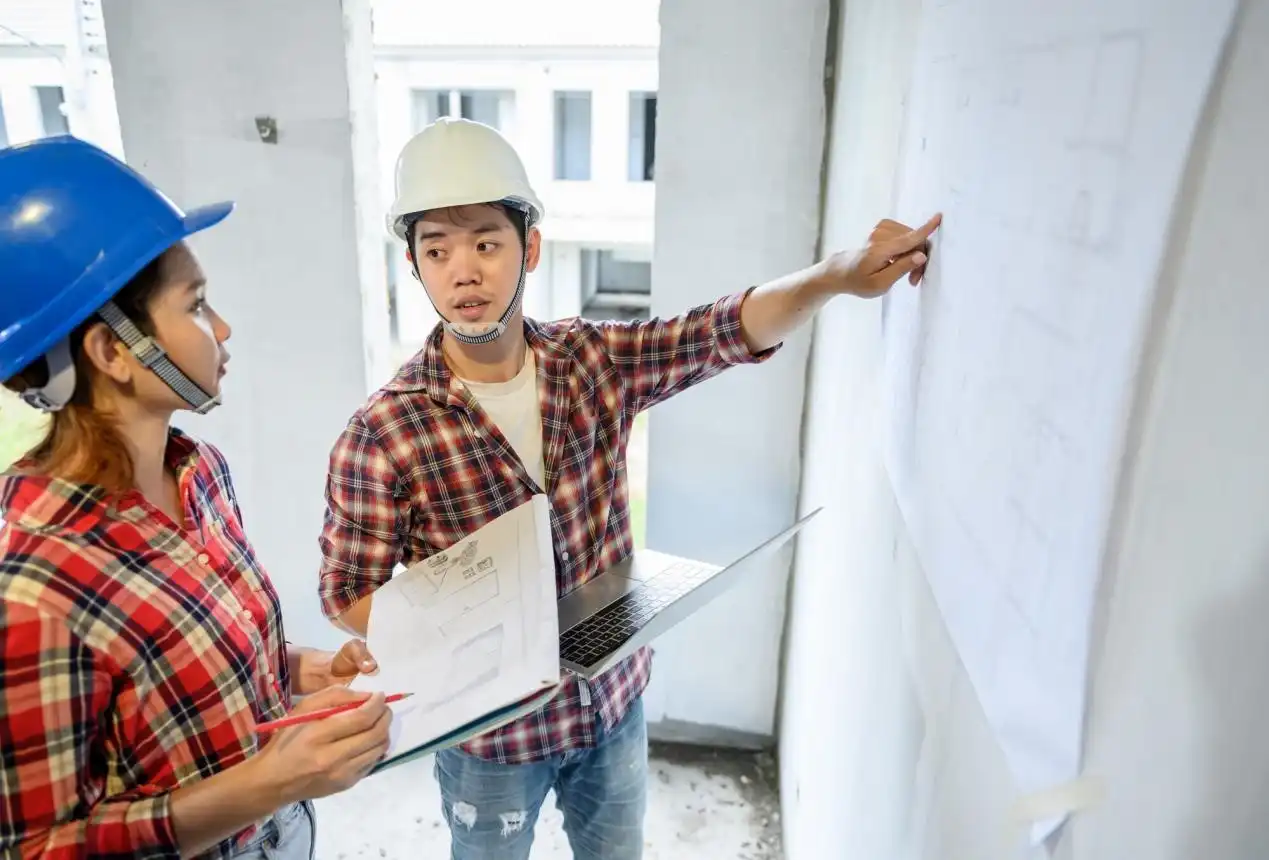When buying a home, it’s crucial to make sure it’s safe and in good condition. Many buyers turn to residential inspections to spot potential problems before they commit to the sale.
It’s no secret that a detailed inspection can save you a lot of money in the future. But did you know there are several types of inspections? You might be surprised by how many options are out there.
Understanding each type of inspection can give you the knowledge to protect your investment and make a smart decision. Let’s dive in!
General Home Inspections
A home inspection is the first step in checking a property’s condition. A qualified inspector does a detailed evaluation of the home.
This includes the structure, roof, plumbing, and electrical systems. Buyers hire inspectors to catch potential issues that could lead to expensive repairs. During these residential inspections, the inspector will usually look at:
- Foundation and structure
- Roof
- Exterior, siding, and windows
- Plumbing and electrical systems
- Heating and cooling systems
- Insulation and ventilation
This process helps future homeowners get a clear idea of the condition of the home they are thinking about buying. For those searching for thorough guidance, consider reaching out to home inspectors in Georgia to ensure your new home is secure and well-maintained.
Pest Inspections
Pest inspections are important for spotting any infestations that could damage your property. Common pests include termites, rodents, and other wood-destroying insects.
A pest inspector can help ensure your home stays protected from these threats. A pest inspection can help you:
Early Detection
Identifying pests early can help prevent major infestations that can damage your home. Catching the problem at the start allows for more affordable and less invasive treatment options.
Cost Savings
Addressing pest problems quickly can save you money on expensive repairs and treatments later on. Early intervention can prevent pests from causing structural damage or requiring extensive fumigation or replacement of affected materials.
Better Negotiations
An inspection can give you valuable information to negotiate repairs or a reduced sale price. If issues are found, you can request the seller address the problem or adjust the asking price to reflect the cost of necessary treatments.
Protect Property
Pests like termites and rodents can compromise your home’s structure and cause long-term damage. A pest inspection helps you catch these issues before they can cause significant harm to your property’s integrity and value.
Peace of Mind
Having your home inspected for pests ensures you’re not overlooking potential threats. It provides reassurance that your living space is safe, free from harmful infestations, and protected from unexpected pest-related issues.
Roof Inspections
The roof is one of the most important parts of a home. It protects the home from the weather, but over time, it can experience wear and tear.
Roof inspections focus on checking the roof’s condition, and finding any damage that could cause leaks or other major issues. Roof inspectors will look at:
- Shingles or tiles
- Flashing and seals around chimneys and vents
- Gutters and drains
- The roof’s structure
HVAC Inspections
An HVAC (Heating, Ventilation, and Air Conditioning) inspection makes sure your home’s heating and cooling systems are working well. A professional inspector will look for any issues that could cause poor performance or safety risks. During an HVAC inspection, inspectors may find:
Leaking Ducts
Leaky ducts can lead to energy loss, causing your system to work harder and raise energy bills. This issue can also affect the efficiency of your heating and cooling.
Clogged Filters
Dirty or clogged filters restrict airflow, reducing the system’s efficiency. This can lead to poor air quality and cause the HVAC system to overheat or wear out prematurely.
Malfunctioning Thermostats
A thermostat that doesn’t accurately read temperatures can cause the HVAC system to cycle too often or fail to regulate the temperature properly. This results in uneven heating or cooling and higher energy usage.
Aging Components
Over time, parts like the blower motor, compressor, or coils can wear out and need replacing. Aging components can cause the system to function poorly or even break down completely.
Low Refrigerant Levels
If the refrigerant level is too low, the system won’t cool effectively. This can lead to freezing of the evaporator coils, damaging the system and reducing cooling performance.
Dirty Coils
The evaporator and condenser coils can collect dirt, which affects their ability to absorb and expel heat. This reduces the system’s efficiency and can cause it to overheat or fail.
Electrical System Inspections
Electrical inspections are vital for identifying potential fire risks and ensuring your home complies with local codes. Inspectors will review wiring, outlets, and overall system performance. Pivotal components reviewed during an electrical inspection include:
Electrical Panel
Inspectors check the main electrical panel for wear, corrosion, or overloaded circuits. This ensures the safety of the electrical system and helps prevent fire hazards.
Wiring and Outlets
Wiring is checked for fraying, wear, or improper installation. Outlets are also inspected for proper grounding and function to avoid shocks or short circuits.
Circuit Breakers
Circuit breakers are tested to ensure they shut off power during overloads. Faulty breakers can cause power outages and increase fire risks.
Grounding and Bonding
Grounding connects the electrical system safely to the earth, protecting against surges. Inspectors ensure grounding wires are intact and the system is properly bonded.
Lighting Fixtures
Inspectors check light fixtures for wiring issues or faulty switches. They look for overheating signs or connections that may pose risks.
Smoke and Carbon Monoxide Detectors
Inspectors make sure smoke and carbon monoxide detectors are installed and working. These devices alert homeowners to potential fire or gas dangers.
Foundation Inspections
The foundation is the backbone of your home. It supports the entire structure, and any issues can lead to severe complications.
Foundation inspections evaluate the state of your home’s foundation and any signs of potential movement or failure. Common indicators that may necessitate a foundation inspection include:
- Cracks in walls or ceilings
- Doors and windows that are difficult to close
- Uneven floors
- Water pooling around the foundation
Timely foundation inspections can help you address concerns before they lead to costly repairs.
Explore the Different Types of Residential Inspections with this Guide
Understanding the different types of residential inspections gives homeowners important knowledge to protect their investments. In today’s competitive real estate market, knowing the condition of a home can be a major advantage. Don’t wait until it’s too late-invest in inspections to secure your home and peace of mind.
Is this article helpful? Keep reading our blog for more.




